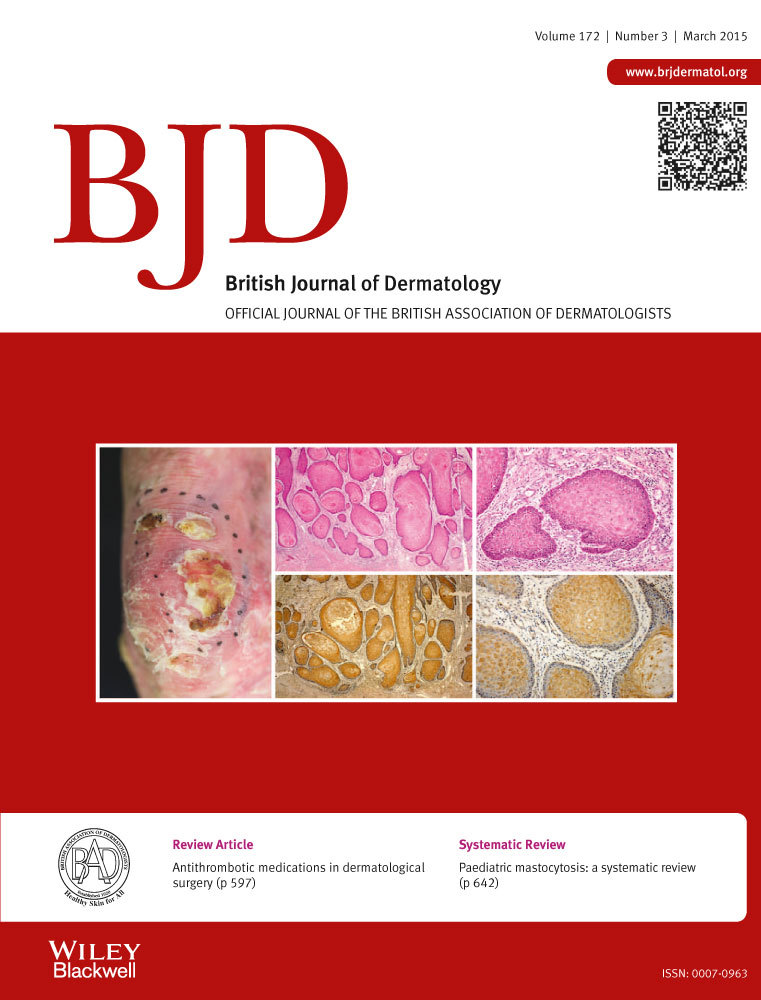Addition of an oral histamine antagonist to reduce adverse events associated with fumaric acid esters in the treatment of psoriasis: a randomized double-blind placebo-controlled trial
Summary
Background
Fumaric acid esters (FAEs) are considered an effective and safe long-term treatment for psoriasis. However, 30–40% of patients need to discontinue FAE treatment due to intolerable adverse events.
Objectives
To assess whether the addition of cetirizine, an oral histamine-1 receptor antagonist, to FAEs would reduce the incidence of adverse events.
Methods
In a randomized, double-blind, placebo-controlled trial, patients with psoriasis with a Psoriasis Area and Severity Index ≥ 10 starting an FAE up to a dose of dimethylfumarate 720 mg per day were randomized 1 : 1 to receive either additional cetirizine 10 mg once daily (n = 25) or placebo (n = 25) for 12 weeks. Randomization and treatment allocation were done at our hospital trial pharmacy. Primary outcomes were the incidence of adverse events and the proportion of patients discontinuing treatment.
Results
Fifty patients (33 male, 17 female; median age 44 years) were enrolled. Addition of cetirizine did not reduce the incidence of adverse events compared with placebo (84% vs. 84%, P = 1·00). The types of adverse events were not different between the cetirizine and placebo groups, the most common being gastrointestinal complaints (68% vs. 64%) and flushes (60% vs. 48%). The proportion of patients discontinuing treatment was not statistically different between the cetirizine and placebo groups (24% vs. 32%, P = 0·53).
Conclusions
Addition of oral cetirizine 10 mg once daily to FAE treatment did not reduce adverse events in patients with psoriasis during the first 12 weeks of treatment. The mechanisms underlying FAE-induced gastrointestinal and flushing symptoms likely involve mediators other than histamine.




